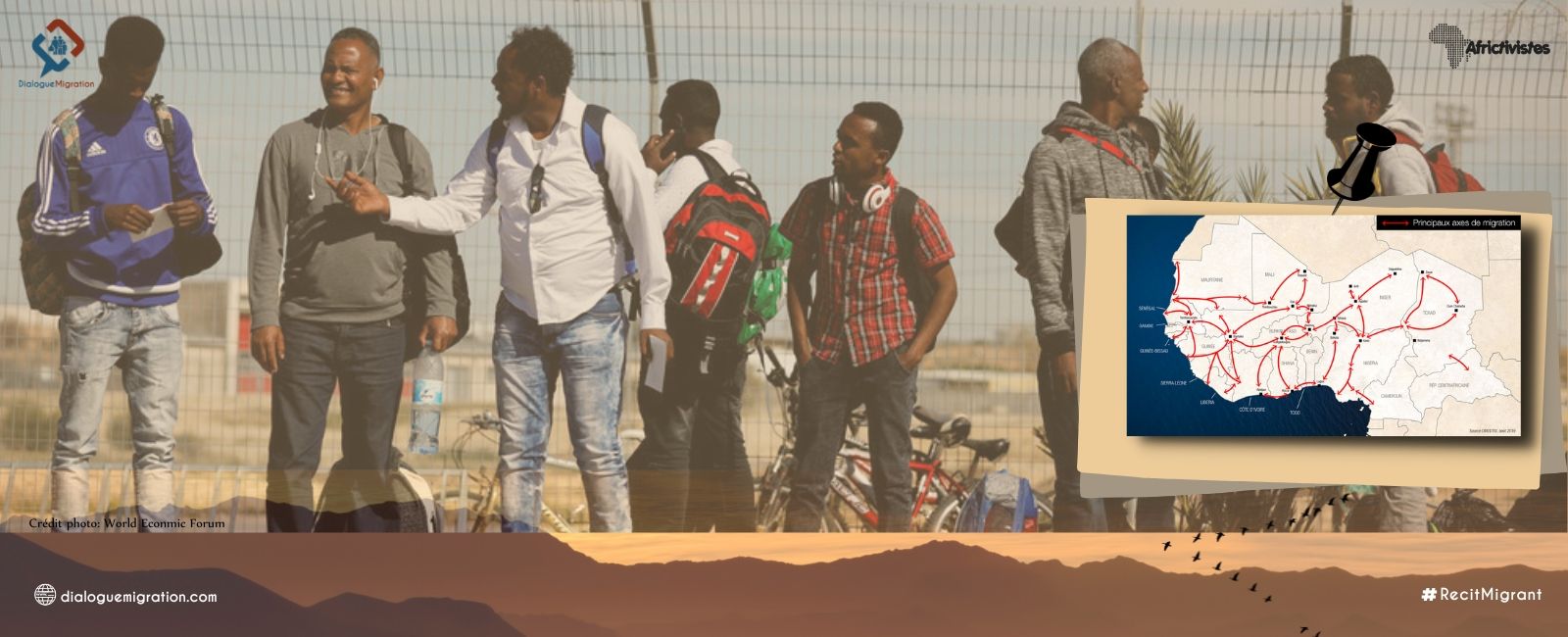

In West Africa, mobility is deeply rooted in history and has been a major driver of development in the region. The region has the highest rate of interregional migration flows in sub-Saharan Africa, according to the United Nations High Commissioner for Refugees (UNHCR). It specifies that 70% of migratory movements in West Africa take place within the region.
In recent years, irregular migration and smuggling of migrants to North Africa and Europe in West Africa has increased significantly, according to the West Africa Regional Representative of the Office of the United Nations High Commissioner for Human Rights, Robert Kotchani.
He pointed out that West African countries, previously considered only as countries of departure, had also become countries of transit, destination and increasingly receiving nationals who opted to return home.
Speaking to Dialogue Migration on the causes of intra-continental displacement of West African migrants, Mr. Kotchani explained that the reasons that push people in West Africa to move are complex and therefore require a comprehensive response. Based on the available information, it lists several factors that can be identified as vectors of migration. First, there is the long tradition of migration in the West African region. But also: “a wide range of violations of economic, social, cultural, political and civil rights, various instabilities and conflicts, as well as environmental changes and natural disasters as well as the negative impacts of climate change,” he said.
Historical and religious causes
Among the reasons that push sub-Saharans to migrate to West Africa are those of history. The Berlin Conference (November 15, 1884 to February 26, 1885) at the end of which African borders were arbitrarily drawn is one of them.
The case of Gambia and Senegal is quite edifying according to Robert Kotchani who explains that these are parents who have been divided by borders.
“It’s very common to see someone who finds himself at the Senegalese-Gambian border and tells you that he will cross to see his cousin or brother who is on the other side.
Separated by borders but united by culture
Regarding the cultural reasons that can lead African migrants to move from one point to another on the same continent, our interlocutor returns to a situation that prevails between the DRC and Uganda.
He explains that there is a Ugandan tribe whose real chiefs who are consulted during ceremonies are in the DRC. “It’s true that both countries have a border, but it has accidentally divided people in such a way that some are forced to cross the border to go and do a ceremony and return home to Uganda,” he said.
“Before, it was the same people,” he says. He continues: “But with the erection of the borders, some have become Ugandans and others Congolese.” According to our expert, this peculiarity is found in Benin, with some border tribes that have important cultural ceremonies in Nigeria. Quite simply, because they are originally from Nigeria, but they have remained in Benin.
Currency, trade and stability
Apart from cultural and historical factors, there are political-economic factors. The agreement signed between the states of West Africa for the free movement of goods and people and the common currency shared by its populations, make it easier to come and go in this part of Africa. “Within the framework of ECOWAS, in West Africa with WAEMU, there is the common currency in several States in the same region. As a result, there is more population displacement. If you take the case of Côte d’Ivoire, it is a state that received for a long time populations from Burkina, Mali, Benin, Senegal because of the El Dorado that still represents this country because of cocoa and coffee. And beyond this economic factor, the stability that Côte d’Ivoire experienced until the events of December 1999 with the first coup d’état that overthrew Henri Konan Bédié. But there is a very strong diaspora from Burkina Faso, Mali, Togo, Benin who are in Côte d’Ivoire,” says our source who works at the United Nations Regional Office for Human Rights in Dakar.
He adds: “In West Africa, since the visa has been abolished between countries, it is easier to cross borders without a visa. So there is a lot of commercial activity. People can come from Ivory Coast to buy things in Senegal to sell them in Abidjan, go to Benin, Togo etc. So there are all these factors. Economic factors, historical factors, stability factors. It is true that there are states that have experienced war such as Nigeria, Sierra Leone and others. But in general, what we can see is that West Africa is a fairly stable region that promotes population displacement and migration as a whole.”
Security reasons
There is also a good proportion of migrants fleeing conflicts in their respective countries to neighbouring states. By fleeing wars and instability, they are often exposed to trafficking and the violation of their most basic rights. The lack of safe and accessible regular migration channels pushes many of these migrants to travel irregularly and dangerously.
“Migrants, especially those in an irregular situation, are likely to be more vulnerable to discrimination, exploitation and marginalization during their migration journey but also during their return. In addition, irregular migrants are often afraid to report the violations they face to the authorities of transit and destination countries for fear of arrest and deportation,” said our UN human rights expert.




